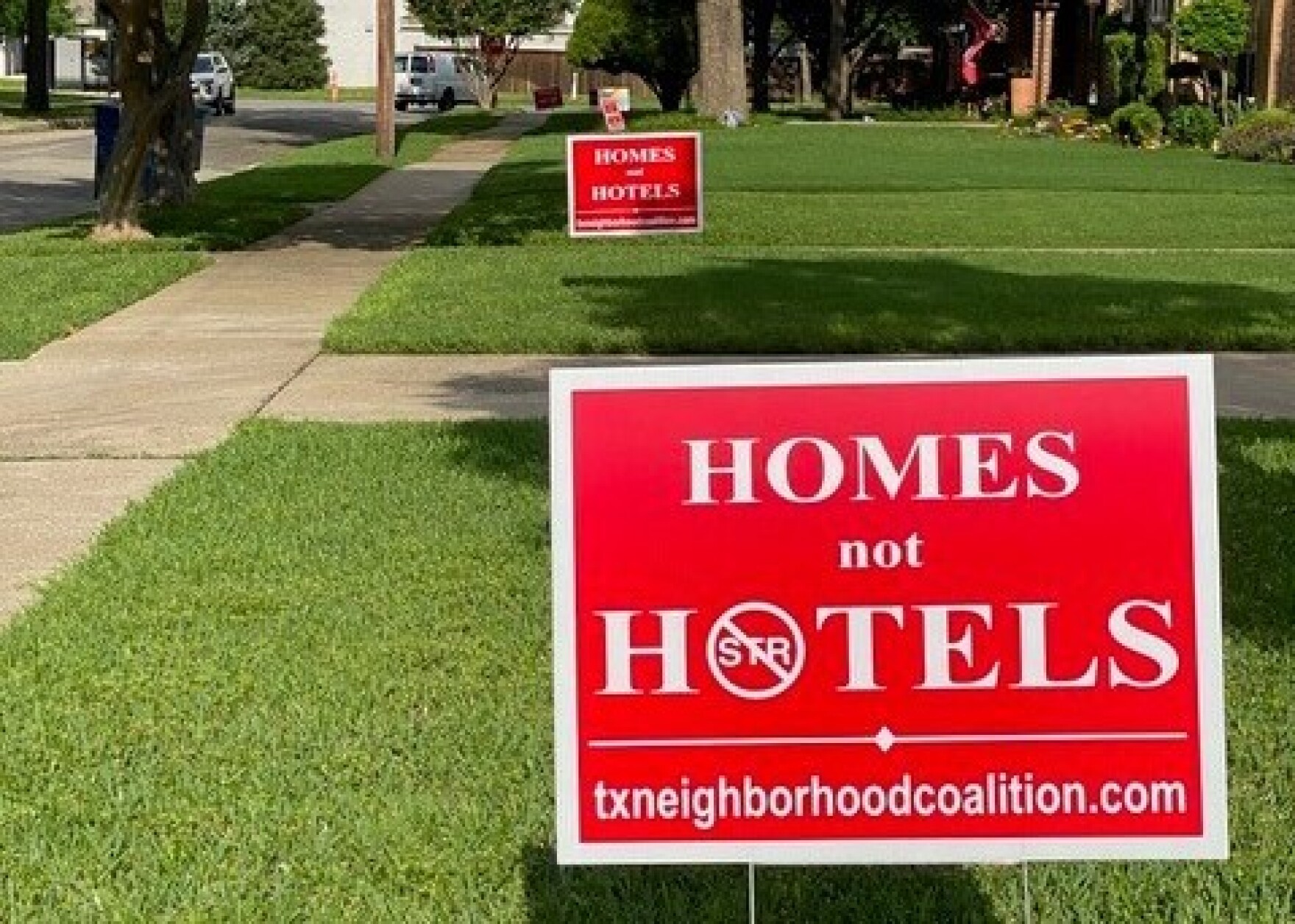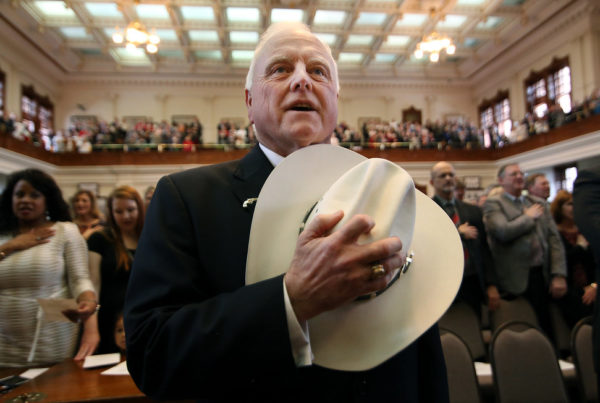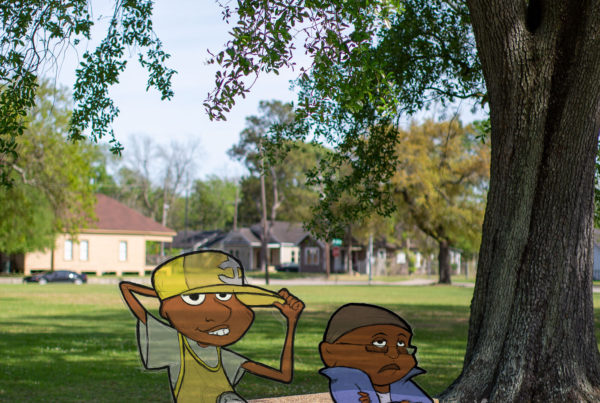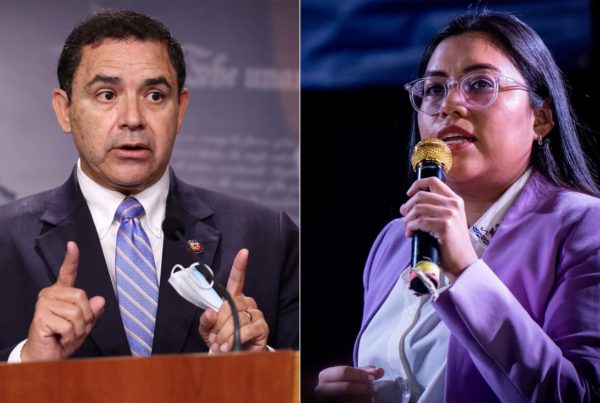From KERA:
The City of Dallas requires STRs to register, but officials say not all of them do. As of last month, 1,055 STRs were registered with the city. STR opponents say that is only about a fifth of the total in Dallas. STRs also are supposed to pay a hotel occupancy tax.
Opponents of STRs want them out of their neighborhoods.
Carl Hays has lived in the Oak Park Estates neighborhood for 31 years. A house in front of Hays’ home started being used as a short-term rental late last year.
“When I bought this home there was an implied warrant of quiet enjoyment. But the problem is I cannot have quiet enjoyment when I get up at 3 o’clock in the morning and hear gunshots outside my door,” Hays said.
The attorney said STRs are destroying his neighborhood and he wants the city to restrict where they can operate.
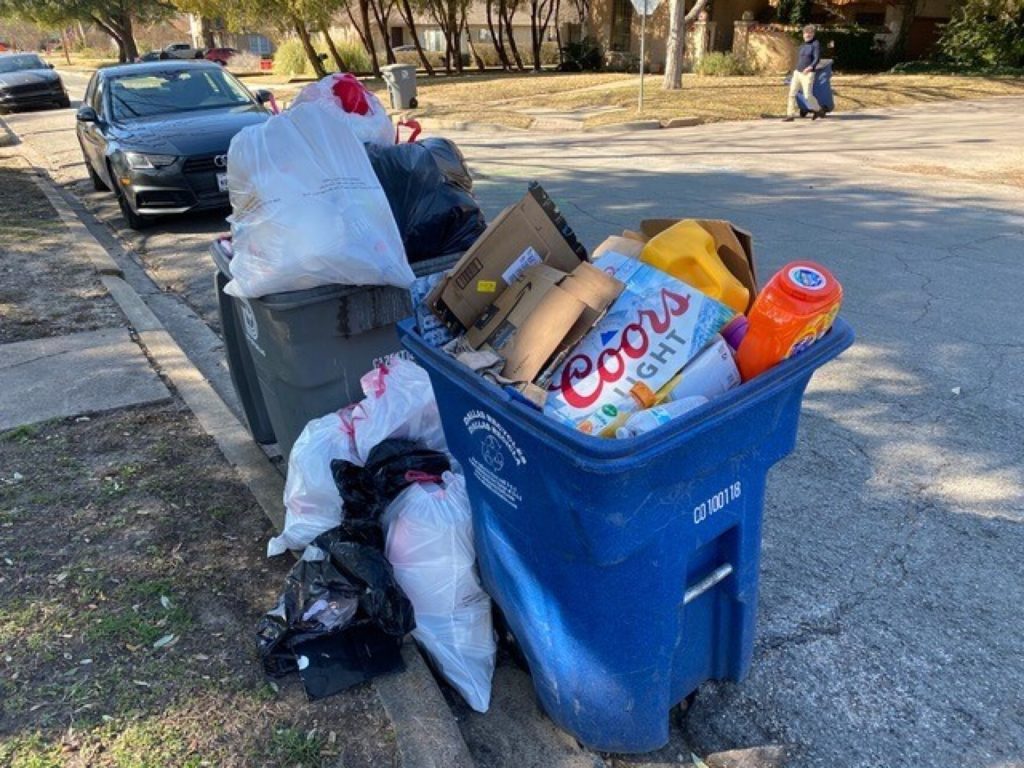
Homeowners who live near short-term rentals in Dallas complain about the noise, traffic congestion and trash.
Courtesy of Olive Talley
“I just think it’s an incubator for crime,” he said.
A long STR battle
For years, homeowners have complained about safety concerns, parking congestion, trash and noise. At a recent Dallas Quality of Life, Arts, and Culture committee meeting, more than 100 people spoke out on the issue. And things got a little heated.
“I have worked for two years to resolve the STR nightmares in my neighborhood and I am appalled at the lack of integrity in this process and how the city has stonewalled many of us,” said Olive Talley, who lives in the Edgemont Park Conservation District.
There was passion on both sides.
“During the pandemic, we provided housing for essential workers. We were striving to keep our communities and neighborhoods safe,” Vera Elkins said. She owns a short-term rental.
Supporters and owners said STRS are attracting visitors to Dallas and boosting the city’s economy.
Council members have acknowledged there is a problem. A task force was created in 2020 to come up with solutions.
The task force recently recommended that the city require all short-term rentals to register, limit the number of people staying at a STR to 10, prohibit outdoor parties between 10 p.m. and 8 a.m, and require STR owners to give guests at the home and neighbors within 100 feet an emergency number.
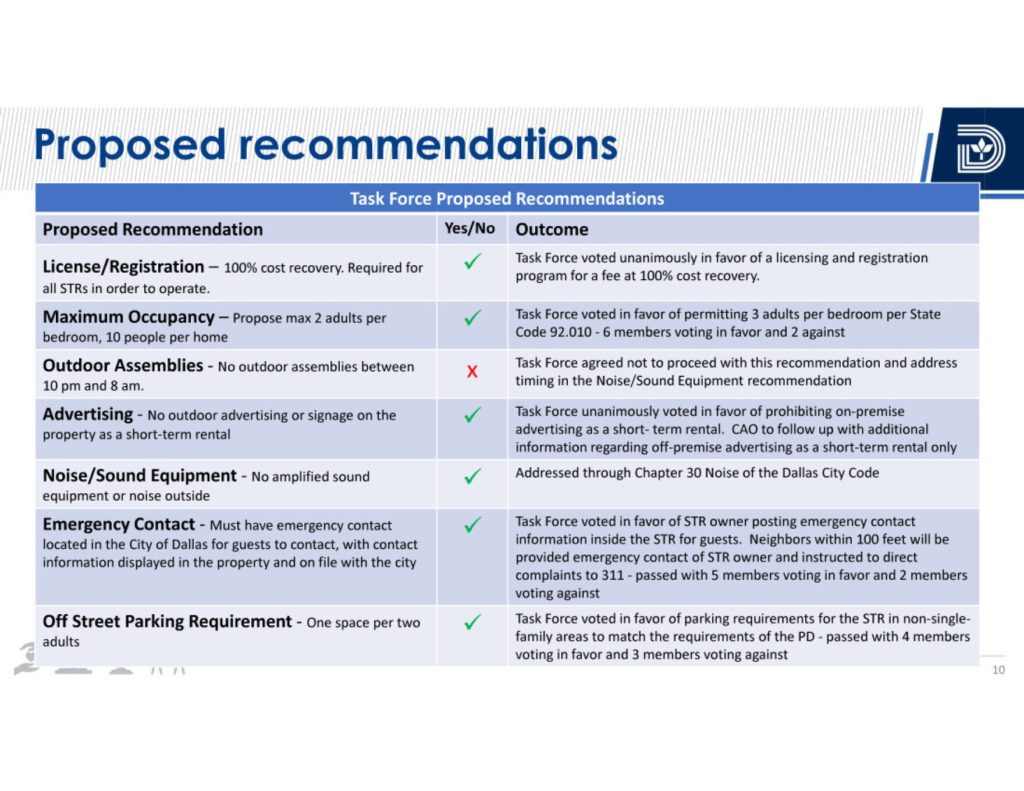
City of Dallas
The committee voted to move forward with some of the recommendations, but not all. For example, members did not agree on outdoor assemblies and instead voted to limit occupancy to three adults per bedroom, which aligns with state code.
Council Member Paul Ridley said more needs to be done.
“The whole process of regulating STRs so far has been wrongheaded,” Ridley said.
He is concerned that STR supporters were overrepresented on the task force. Some residents share that view.
Edgemont Park Conservation District resident Norma Minnis is on the task force and said she was “profoundly disappointed” with who was on it.
“When the members of the task force were announced, I was shocked to see that the membership were dominated by people who earn an income from STRs or are former STR owners,” she wrote in a letter sent to the city last month.
Ridley said that imbalance was reflected in its recommendations.
“That to me is a fatal flaw that invalidates the recommendations of that task force,” Ridley said.
A different approach
Dave Schwarte, a member of the TX Neighborhood Coalition, helped push the city of Arlington to adopt a zoning ordinance that limited where STRs can operate.
“All rentals of less than 30 days are strictly prohibited in residential neighborhoods except the ones within the entertainment district,” he said. “Our ordinances are working. Do not fall into the trap which is allowing these to operate without first determining where they can lawfully do business.”
Dallas short-term rental opponents want this zoning to keep STRs out of residential neighborhoods too. Council Member Paul Ridley is calling for new zoning rules.
“The intelligent and targeted solution is to allow STR hotels only in areas where traditional hotels, with which STR hotels compete, are allowed,” Ridley wrote in a letter in response to an article suggesting that STRs could help fund the arts.
The short-term rental discussion will continue at a Dallas Quality of Life, Arts, and Culture committee meeting on February 22. Council members on the committee will discuss the task force’s recommendations and vote whether to move forward to a full council vote.
Luis Briones, the Texas Public Policy and Government Affairs Director at Airbnb said part of his company’s efforts “to prevent and defer community disruption” is a new policy that banned parties at the short-term rentals they operate.
“They [City Council] are really looking to manage, not banish, STRs in the city,” Briones said. “And we think that is the right approach. Identify the bad actors and in partnership with us take action on those folks that they are not allowed and so they do not have a place on our platform.”
Got a tip? Alejandra Martinez is a Report For America corps member for KERA News. Email Alejandra at amartinez@kera.org. You can follow Alejandra on Twitter @alereports.


